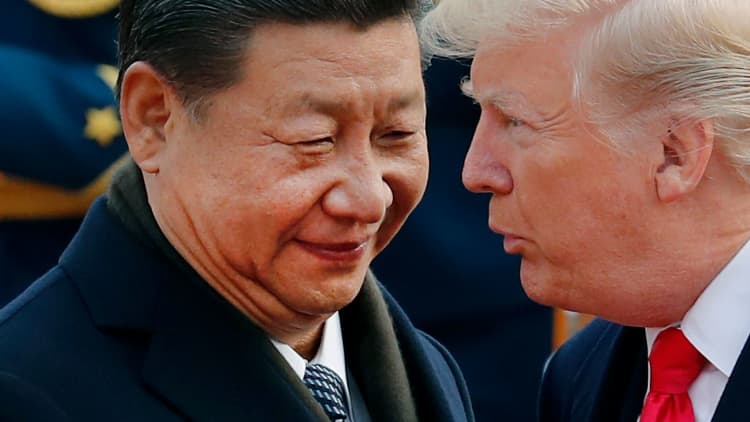
Stephen Roach, a senior fellow at Yale University, told CNBC on Wednesday that anti-government protests in Hong Kong are out of control.
"Right now, we're talking about a destructive anarchy," the former Morgan Stanley Asia chairman said in a "Squawk Box" interview.
"Is that what standing for the people of Hong Kong means?" he asked, referring to the National Basketball Association's continued struggles to contain the fallout from Houston Rockets general manager Daryl Morey's now-deleted tweet on Friday supporting the demonstrations in Hong Kong.
Protesters have rallied across Hong Kong over the past four months in what started as opposition to a now-withdrawn bill that would have enabled extraditions to mainland China.
However, as demonstrations in the Chinese territory morphed into an anti-government movement, there's been increasing violence. Last week, Hong Kong police shot a protester and fired tear gas while demonstrators threw gas bombs.
"There's a legitimate gripe over this horribly mismanaged extradition bill," said Roach, considered a leading authority on Asia. But he contended, "It's gotten totally out of hand. It's aimed at tearing down anything and everything that stands for Hong Kong's future." He added, "I don't support that."
"Morey has no idea what he's talking about," Roach said. "It's fine that you support democracy and freedom, but in what form do you do that?"
Despite apologies from both Morey and the league, Chinese broadcasters have pulled NBA preseason games from their networks, e-commerce sites delisted Rockets merchandise and brands started reassessing their relationships with the American basketball league.
On Sunday, NBA Chief Communications Officer Mike Bass wrote in press release that the organization understands Morey's tweets have "deeply offended many of our friends and fans in China, which is regrettable."
"While Daryl has made it clear that his tweet does not represent the Rockets or the NBA, the values of the league support individuals' educating themselves and sharing their views on matters important to them," Bass added.
That messaging from the league — we're sorry you were offended but we're not going to muzzle our people on social issues — has not gone over well in China and the NBA has been in damage control mode.
Sen. Ted Cruz, in an earlier CNBC interview on Wednesday, was critical of the NBA, saying the league should not be an "arm of Chinese censorship" by being too apologetic, "because that exports their repressive policies and regime to the United States and globally."
Meanwhile, the Texas Republican sees the Hong Kong protests differently than Roach. The senator said, "The protesters in Hong Kong are standing up for democracy. They are standing up for human rights."
When asked for comment on Roach's and Cruz's remarks, a spokesman for the NBA referred CNBC to a prepared statement Tuesday from Commissioner Adam Silver.
"[The] NBA will not put itself in a position of regulating what players, employees and team owners say or will not say on these issues," he said. "We simply could not operate that way."
The Hong Kong protests have been a black eye for China, which is set to resume high-level trade talks with the United States in Washington on Thursday. The U.S. has warned that strong intervention in Hong Kong by Beijing could hurt the prospects of cutting a deal to end the trade war between the two nations.
Hong Kong, previously under British rule, became part of China in 1997. As part of the handover, China vowed to respect the city's semiautonomy through a "one country, two systems" stance until 2047. However, that now-spiked extradition bill, which started the protests in Hong Kong, was viewed as another sign of encroaching influence from Beijing.


